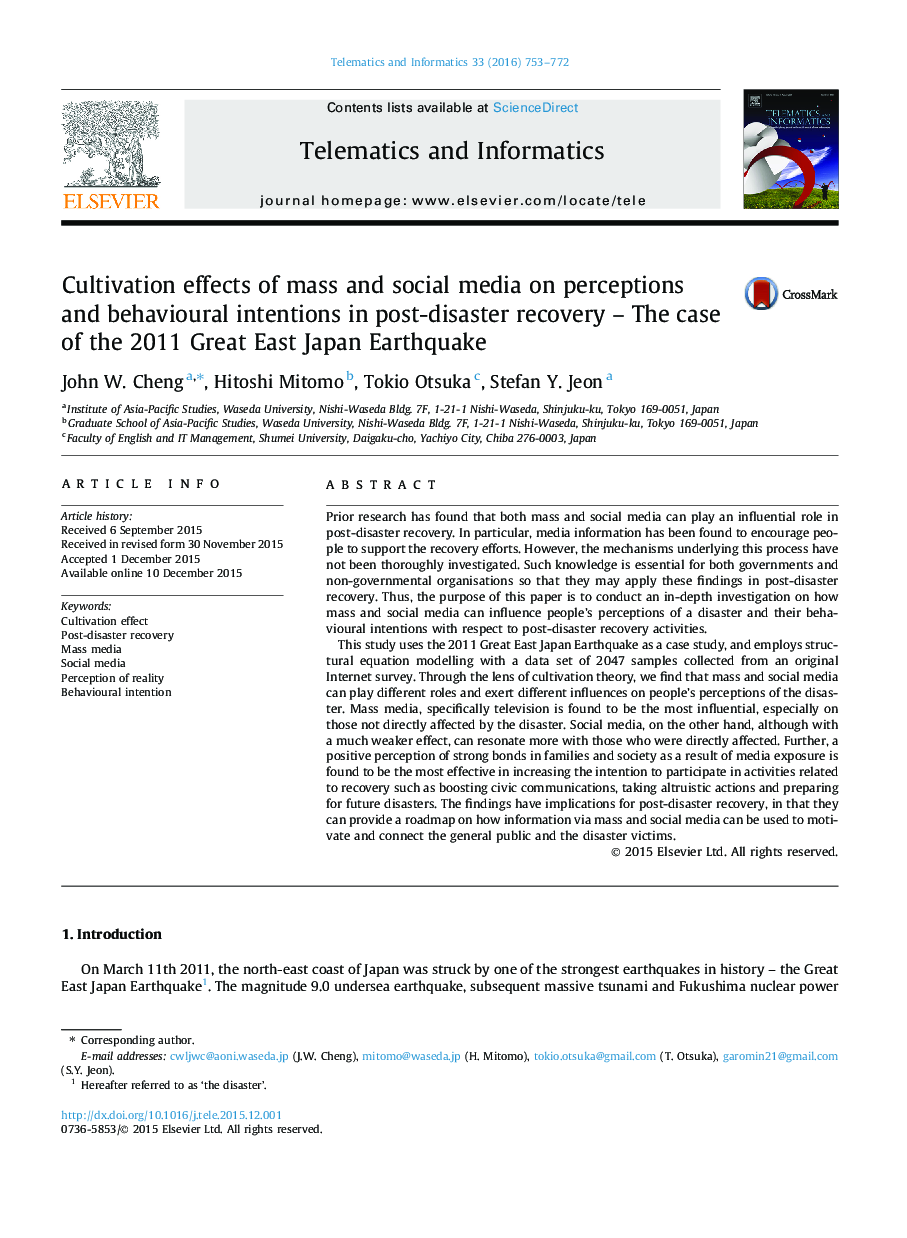| کد مقاله | کد نشریه | سال انتشار | مقاله انگلیسی | نسخه تمام متن |
|---|---|---|---|---|
| 465264 | 697532 | 2016 | 20 صفحه PDF | دانلود رایگان |
• Mass and social media have different effects on people’s perceptions of the disaster.
• Effects of mass media are much stronger than effects of social media.
• Mass media is especially influential on those who were not affected by the disaster.
• Social media resonates more with those who were directly affected by the disaster.
• The perception of bonds is the most influential on people’s behavioural intentions.
Prior research has found that both mass and social media can play an influential role in post-disaster recovery. In particular, media information has been found to encourage people to support the recovery efforts. However, the mechanisms underlying this process have not been thoroughly investigated. Such knowledge is essential for both governments and non-governmental organisations so that they may apply these findings in post-disaster recovery. Thus, the purpose of this paper is to conduct an in-depth investigation on how mass and social media can influence people’s perceptions of a disaster and their behavioural intentions with respect to post-disaster recovery activities.This study uses the 2011 Great East Japan Earthquake as a case study, and employs structural equation modelling with a data set of 2047 samples collected from an original Internet survey. Through the lens of cultivation theory, we find that mass and social media can play different roles and exert different influences on people’s perceptions of the disaster. Mass media, specifically television is found to be the most influential, especially on those not directly affected by the disaster. Social media, on the other hand, although with a much weaker effect, can resonate more with those who were directly affected. Further, a positive perception of strong bonds in families and society as a result of media exposure is found to be the most effective in increasing the intention to participate in activities related to recovery such as boosting civic communications, taking altruistic actions and preparing for future disasters. The findings have implications for post-disaster recovery, in that they can provide a roadmap on how information via mass and social media can be used to motivate and connect the general public and the disaster victims.
Journal: Telematics and Informatics - Volume 33, Issue 3, August 2016, Pages 753–772
